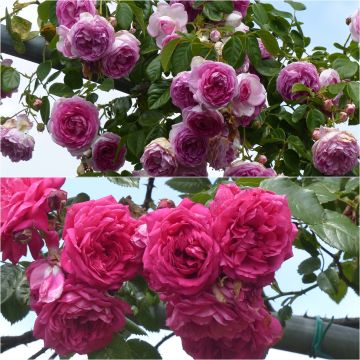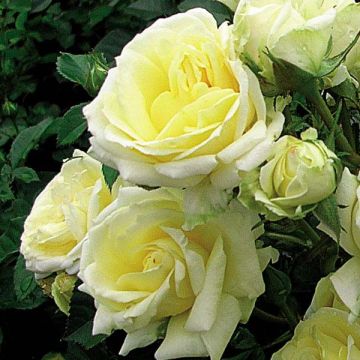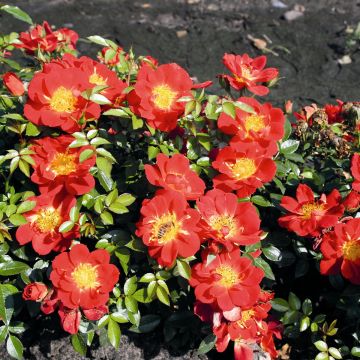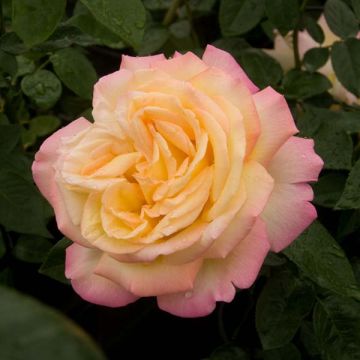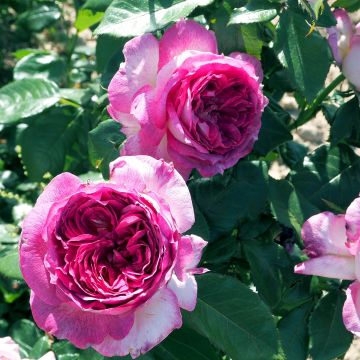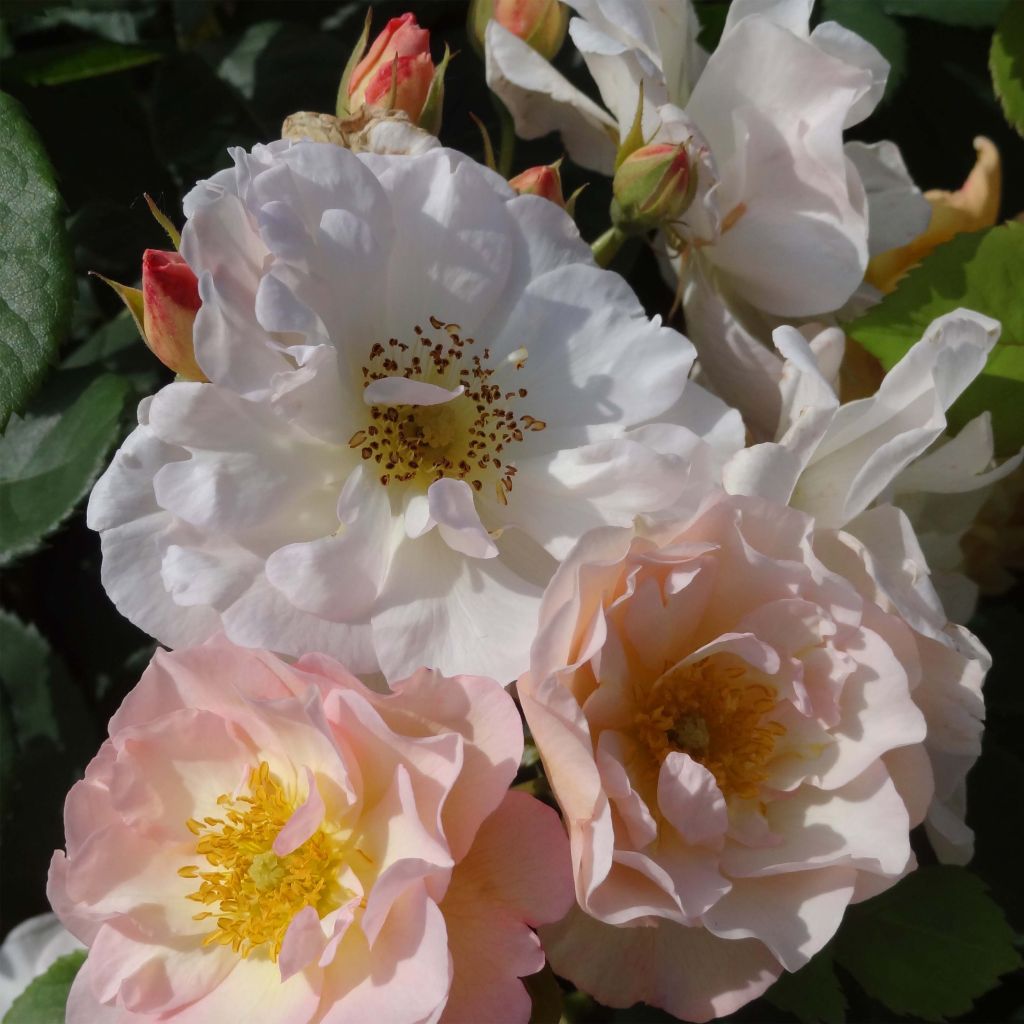

Rosa moschata Penelope - Musk Rose
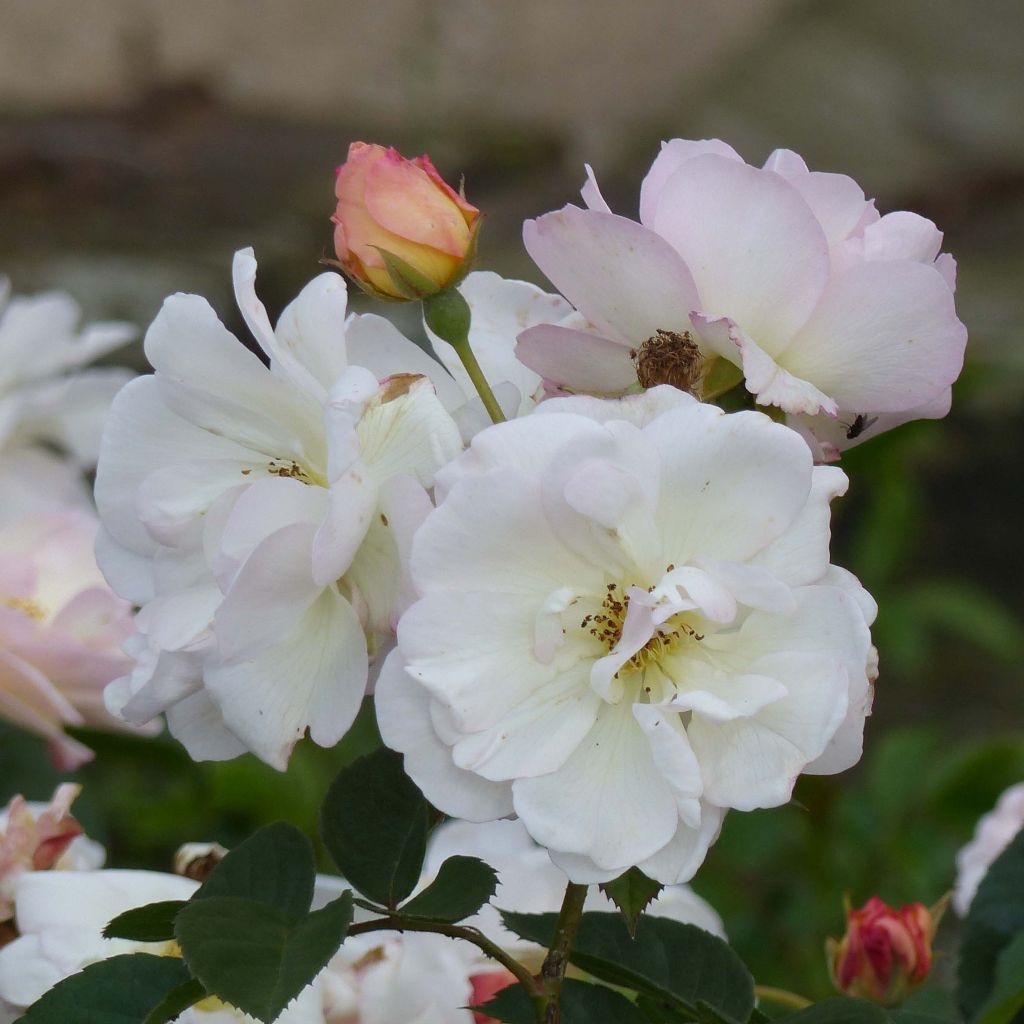

Rosa moschata Penelope - Musk Rose
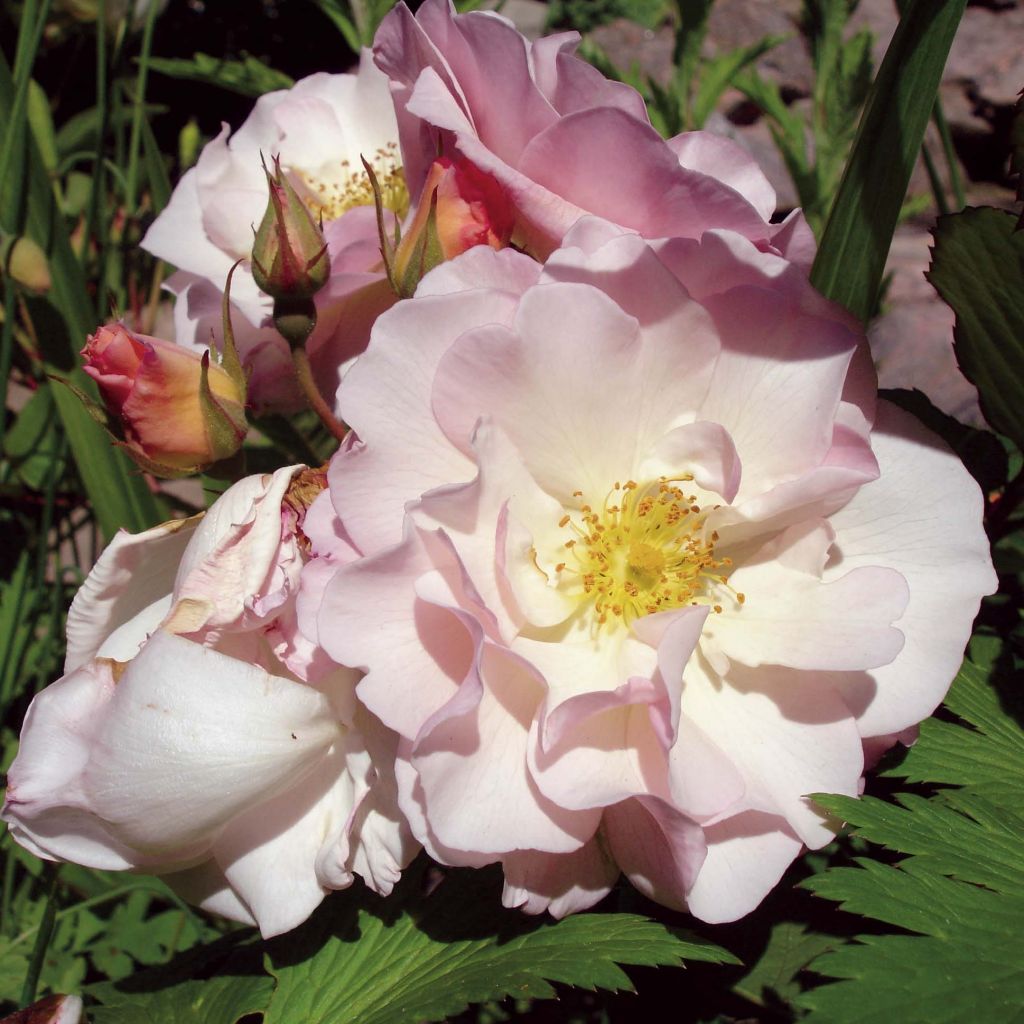

Rosa moschata Penelope - Musk Rose
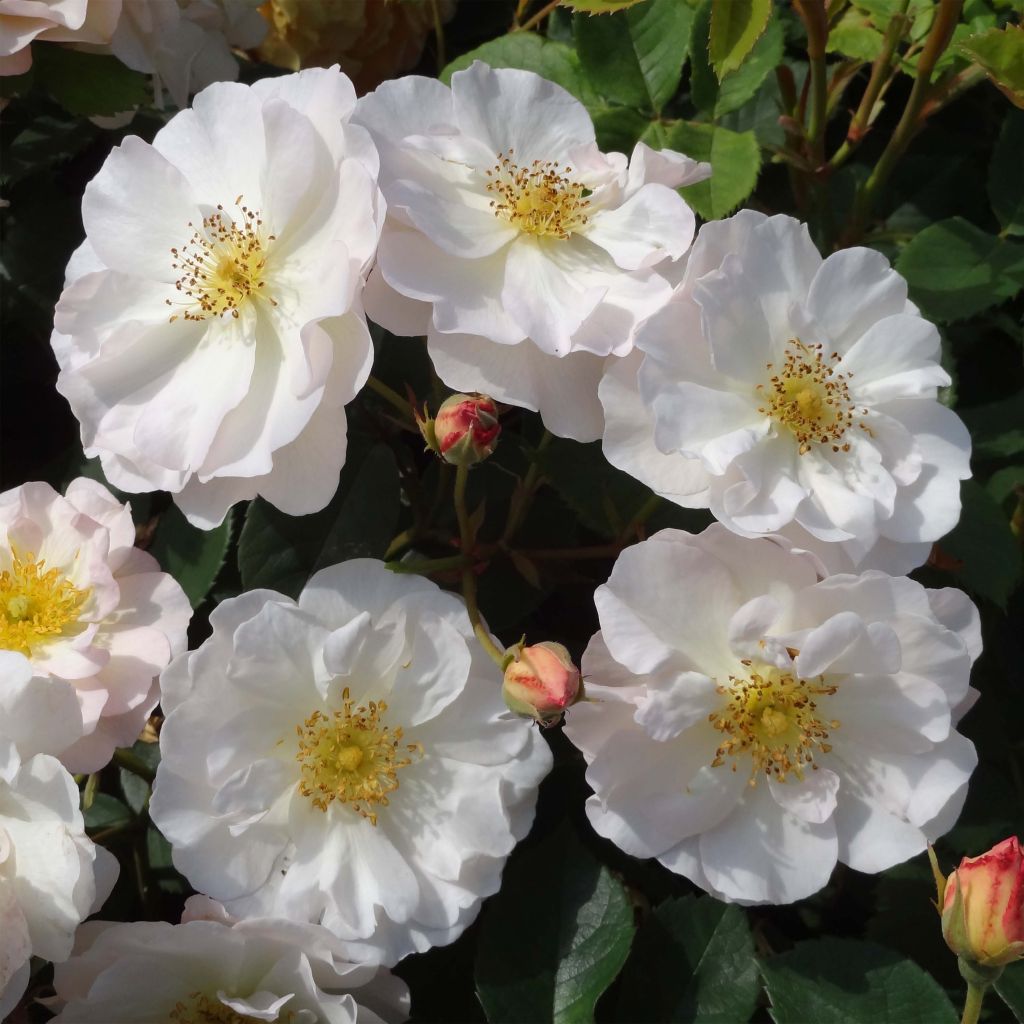

Rosa moschata Penelope - Musk Rose
Rosa moschata Penelope - Musk Rose
Rosa x moschata Pénélope
Musk Rose
This item cannot be shipped to the selected country
Delivery charge from €5.90
Delivery charge from €5.90
Delivery to Corse prohibited
More information
Delivery charge from €5.90
Delivery charge from €5.90
Delivery to Corse prohibited
More information
Schedule delivery date,
and select date in basket
This plant carries a 24 months recovery warranty
More information
We guarantee the quality of our plants for a full growing cycle, and will replace at our expense any plant that fails to recover under normal climatic and planting conditions.
From €5.90 for pickup delivery and €6.90 for home delivery
Express home delivery from €8.90.
From €5.90 for pickup delivery and €6.90 for home delivery
Express home delivery from €8.90.
Delivery to Corse prohibited: UE law prohibits the import of this plant from mainland France to Corse as part of the fight against Xylella fastidiosa. Please accept our sincere apologies.
More information

Does this plant fit my garden?
Set up your Plantfit profile →
Description
Rosa x moschata 'Penelope' is a large, vigorous and branched bushy musk rose that produces a profusion of semi-double deliciously scented roses. Initially salmon-coloured and crumpled, the corollas unfold, gradually fading to an ivory hue washed with fawn and cream, before fully opening to reveal a pale yellow centre. Gathered in generous clusters, they inundate a dark foliage, from summer until frost. They give way to charming little coral pink fruits. Passionate, unreasonable and romantic to the core, 'Penelope' is undoubtedly one of the best roses in its group, just like 'Felicia'. This excellent bushy hedge rose produces roses that hold up very well in a vase.
The old rose 'Penelope' belongs to the Rosaceae family, it is a hybrid obtained in 1924 by Reverend Pemberton (who is also credited with the roses 'Cornelia', 'Felicia', 'Robin Hood'...). These plants are all obtained by cross-breeding Rosa multiflora with Rosa moschata, a species probably originating from Asia Minor or the Middle East. ‘Penelope’, with its spreading and rounded habit, will reach a height of 1.2m (3 ft 4 in) and at least the same in width. Its growth is fast, after 3 years of cultivation, it will already form a beautiful bush. Naturally bushy, 'Penelope' has flexible branches that gracefully cascade and offers abundant flowering, often continuous until frost. It flowers for so long that it carries both flowers and small hips at the same time, these fruits being particularly decorative until the heart of winter. Flowering begins in June and only stops at frost. The cup-shaped flowers carried by slender stems measure 7cm (2.8in) in diameter, they are semi-double, in a beautiful ivory tinted with pink, cream and fawn, arranged in bouquets. They also diffuse a sweet scent of warm honey, clove and iris, characteristic of Pemberton hybrids. The abundant, semi-evergreen foliage is composed of very healthy dark green round leaves.
The passion for old roses is both widespread and well justified: these roses are not only the ancestors of our modern roses, but also the glory of our gardens. Rosa x moschata 'Penelope' is a generous and delicate rose, which will be given a prominent place near the house or a passage that allows one to enjoy its fragrance, but also in a free hedge where it will assert itself against its neighbors. In shrub or large perennial beds, it will be enhanced by light flowers that are good companions for roses: Gypsophila paniculata, valerian, Pholx paniculata, catmints, bellflowers, garden irises, fennel, bluebeards, Gauras and even lavenders. An association with tall grasses (Miscanthus, Panicum) will be more modern. The flower clusters hold up very well in bouquets, with the buds opening well in water.
Rosa moschata Penelope - Musk Rose in pictures
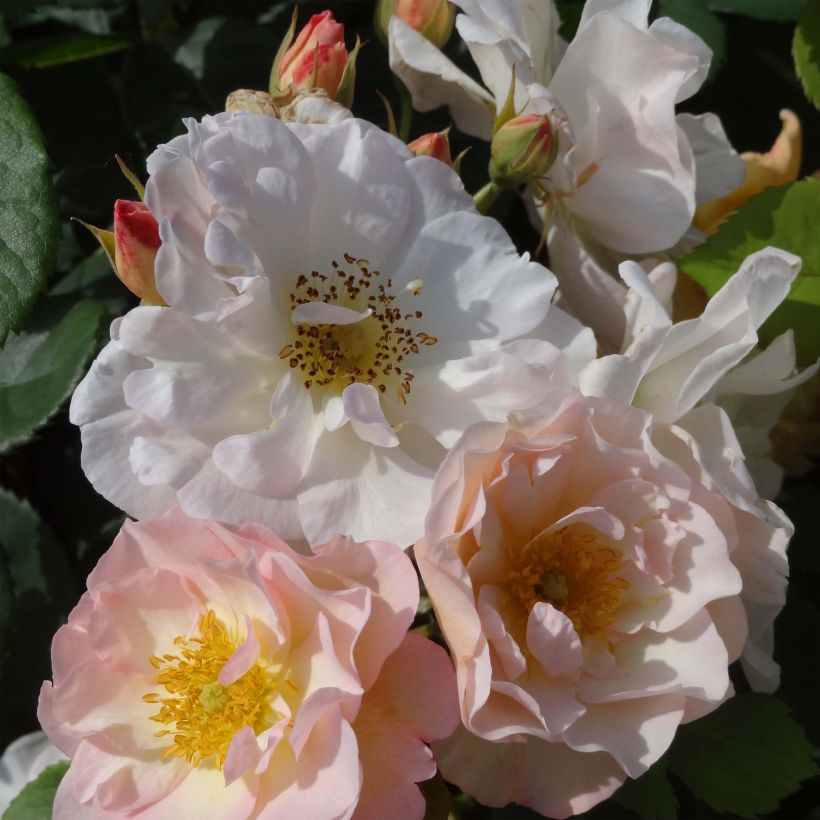

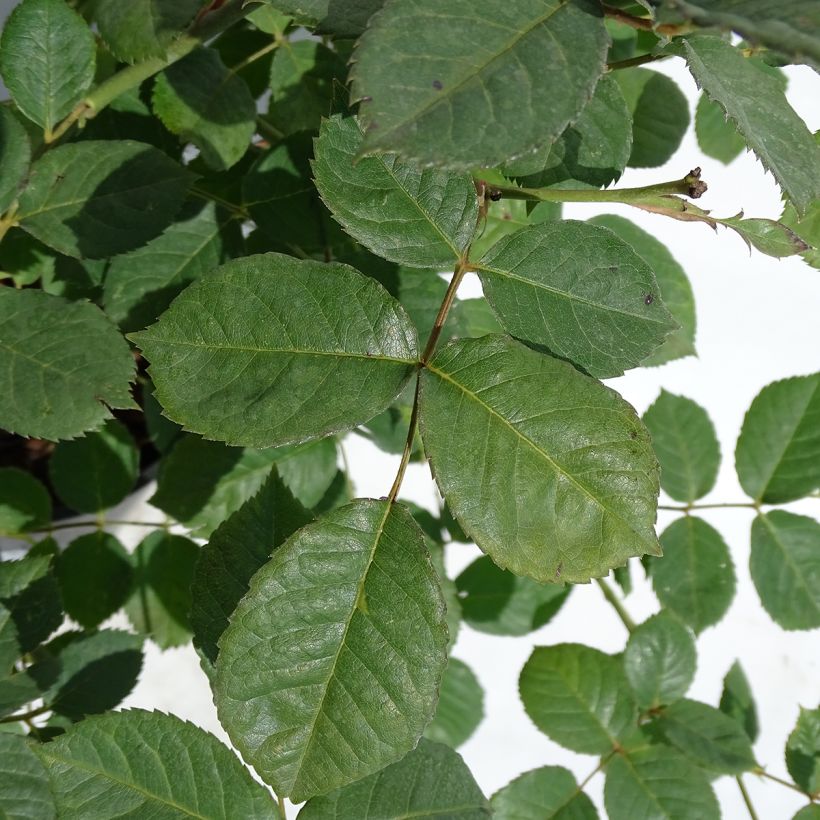

Plant habit
Flowering
Foliage
Botanical data
Rosa
x moschata
Pénélope
Rosaceae
Musk Rose
Cultivar or hybrid
Other Roses A to Z
Planting and care
The 'Penelope' rose adapts to any type of soil, even heavy or sandy, even occasionally dry, as long as the planting is taken care of! Plant it in well-worked and well-drained ordinary soil, and in a sunny or semi-shaded position that it tolerates very well. To maintain a well-bushy habit, maintenance is simple: after winter, remove the faded clusters and the oldest branches (2-3 years). Quite hardy, this rose withstands -18°C (-0.4 °F) and, if despite everything, after a harsh winter, the branches freeze to the ground, the bush will regrow from the base in spring. It may be useful to remove dead wood in winter, and to remove faded flowers if you do not want fruit formation. If necessary, in spring, after the risk of frost, a light pruning can be done. To plant your rose in a pot, prepare your soil over a 25cm (9.8in) cube by crumbing the soil well and adding a background amendment such as dried blood or dehydrated horn at the bottom of the planting hole. Position your plant, removed from its pot, covering the top of the root ball with 3cm (1.2in) of soil, fill in and water generously to eliminate air pockets. During dry weather, regular watering is necessary for a few weeks to facilitate rooting. Also, remember to provide your rose with special rose fertilizer to stimulate plant flowering. To achieve abundant flowering in your roses, regularly bend and tie the branches. Each bend results in a lateral shoot that ends in a cluster of flowers. Do not hesitate to use this technique, you will be rewarded.
Roses are often stained or unsightly at the end of summer, but this is not a problem for their development. These spots are not harmful to the rose, it is a natural phenomenon.
Planting period
Intended location
Care
-
, onOrder confirmed
Reply from on Promesse de fleurs
Haven't found what you were looking for?
Hardiness is the lowest winter temperature a plant can endure without suffering serious damage or even dying. However, hardiness is affected by location (a sheltered area, such as a patio), protection (winter cover) and soil type (hardiness is improved by well-drained soil).

Photo Sharing Terms & Conditions
In order to encourage gardeners to interact and share their experiences, Promesse de fleurs offers various media enabling content to be uploaded onto its Site - in particular via the ‘Photo sharing’ module.
The User agrees to refrain from:
- Posting any content that is illegal, prejudicial, insulting, racist, inciteful to hatred, revisionist, contrary to public decency, that infringes on privacy or on the privacy rights of third parties, in particular the publicity rights of persons and goods, intellectual property rights, or the right to privacy.
- Submitting content on behalf of a third party;
- Impersonate the identity of a third party and/or publish any personal information about a third party;
In general, the User undertakes to refrain from any unethical behaviour.
All Content (in particular text, comments, files, images, photos, videos, creative works, etc.), which may be subject to property or intellectual property rights, image or other private rights, shall remain the property of the User, subject to the limited rights granted by the terms of the licence granted by Promesse de fleurs as stated below. Users are at liberty to publish or not to publish such Content on the Site, notably via the ‘Photo Sharing’ facility, and accept that this Content shall be made public and freely accessible, notably on the Internet.
Users further acknowledge, undertake to have ,and guarantee that they hold all necessary rights and permissions to publish such material on the Site, in particular with regard to the legislation in force pertaining to any privacy, property, intellectual property, image, or contractual rights, or rights of any other nature. By publishing such Content on the Site, Users acknowledge accepting full liability as publishers of the Content within the meaning of the law, and grant Promesse de fleurs, free of charge, an inclusive, worldwide licence for the said Content for the entire duration of its publication, including all reproduction, representation, up/downloading, displaying, performing, transmission, and storage rights.
Users also grant permission for their name to be linked to the Content and accept that this link may not always be made available.
By engaging in posting material, Users consent to their Content becoming automatically accessible on the Internet, in particular on other sites and/or blogs and/or web pages of the Promesse de fleurs site, including in particular social pages and the Promesse de fleurs catalogue.
Users may secure the removal of entrusted content free of charge by issuing a simple request via our contact form.

































